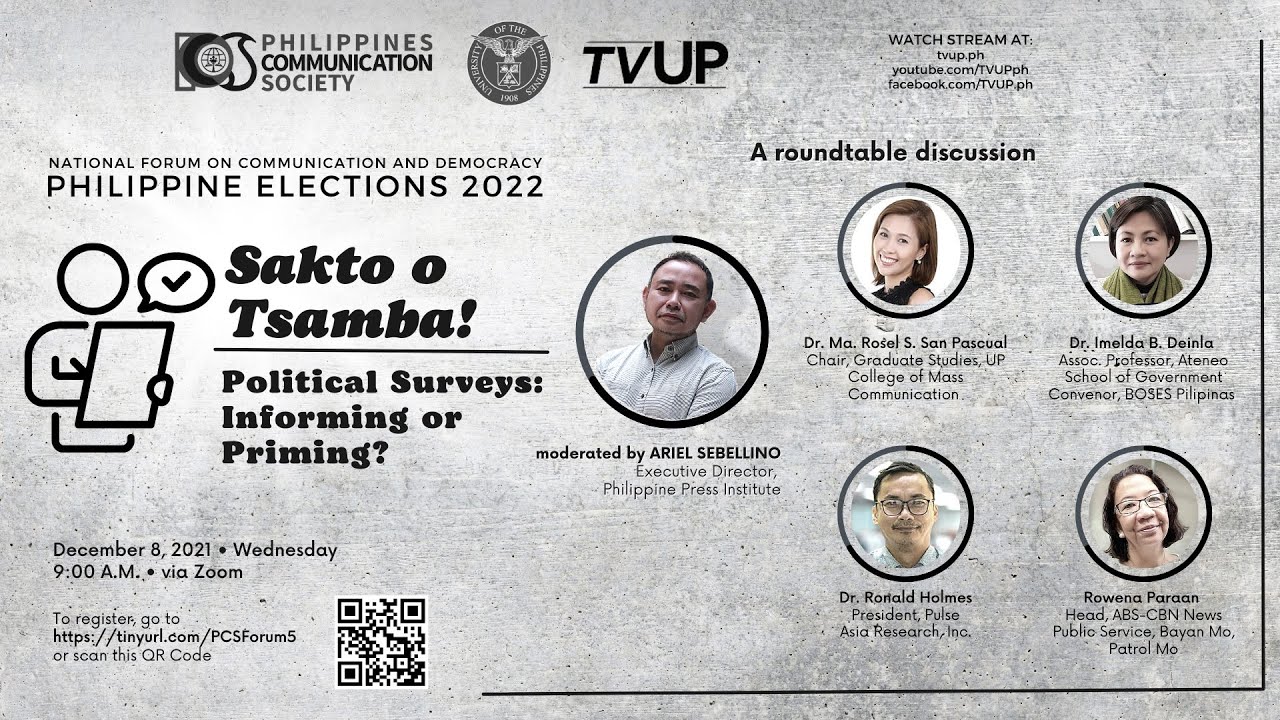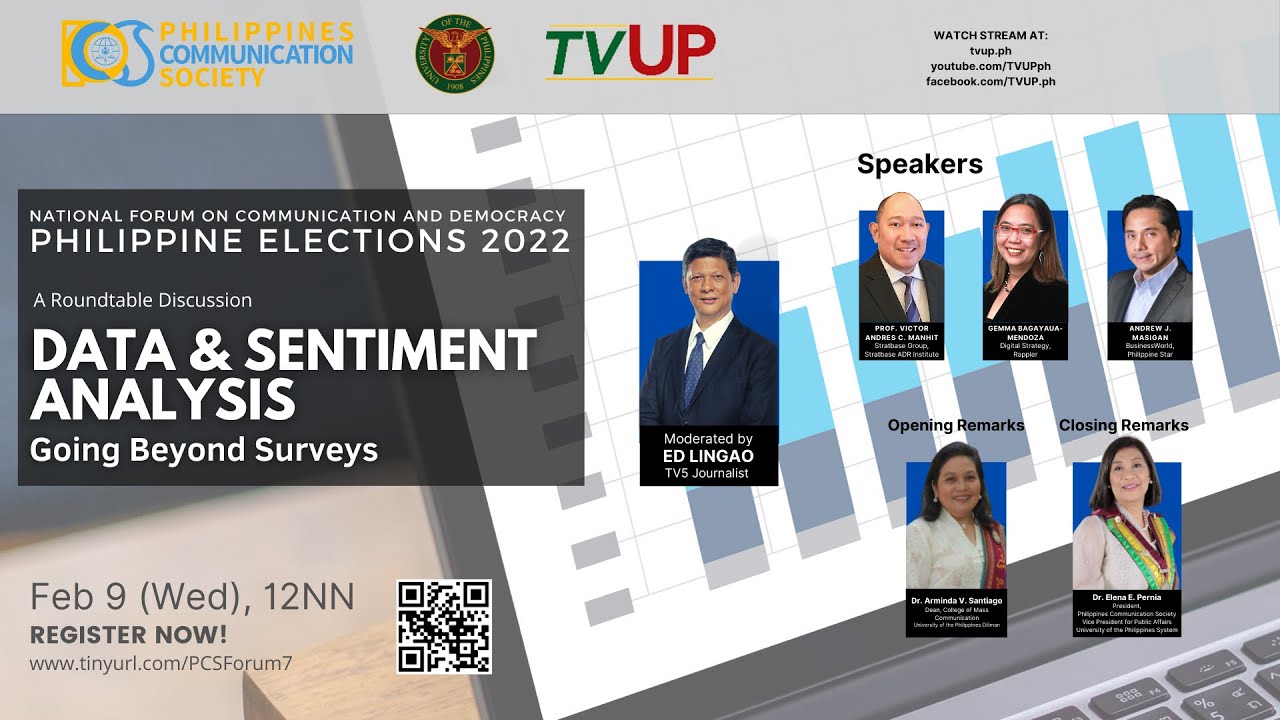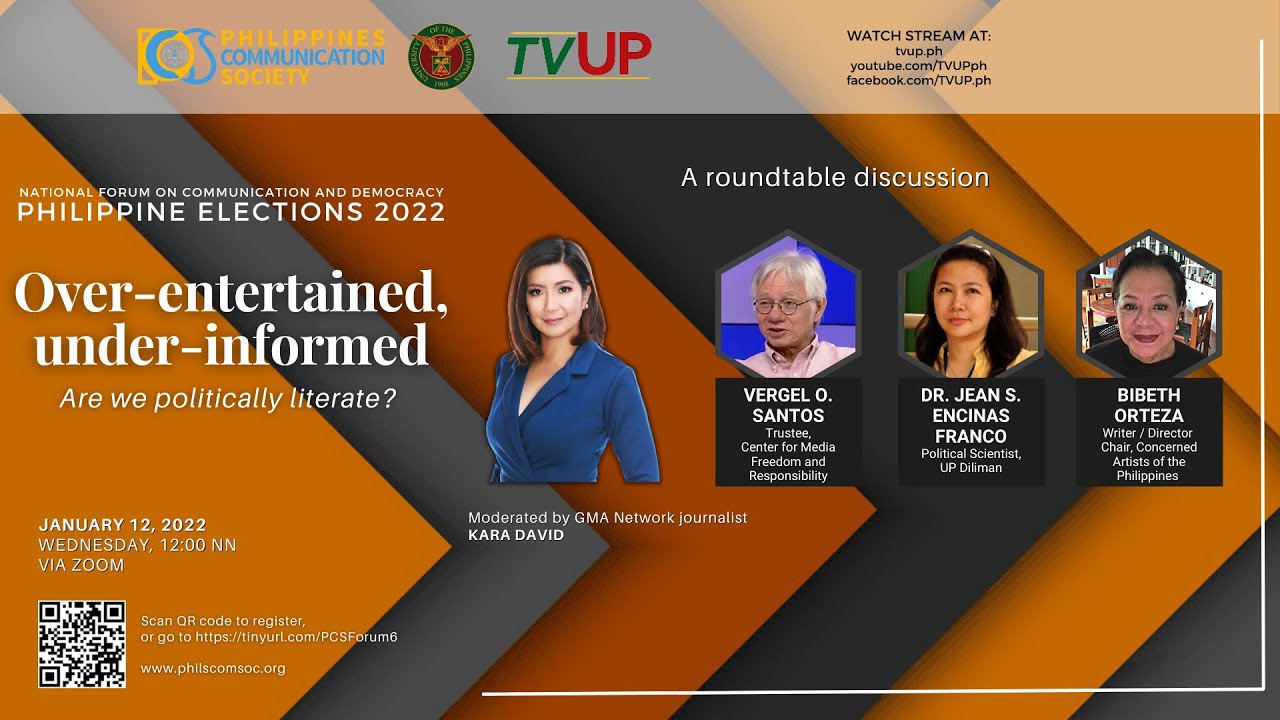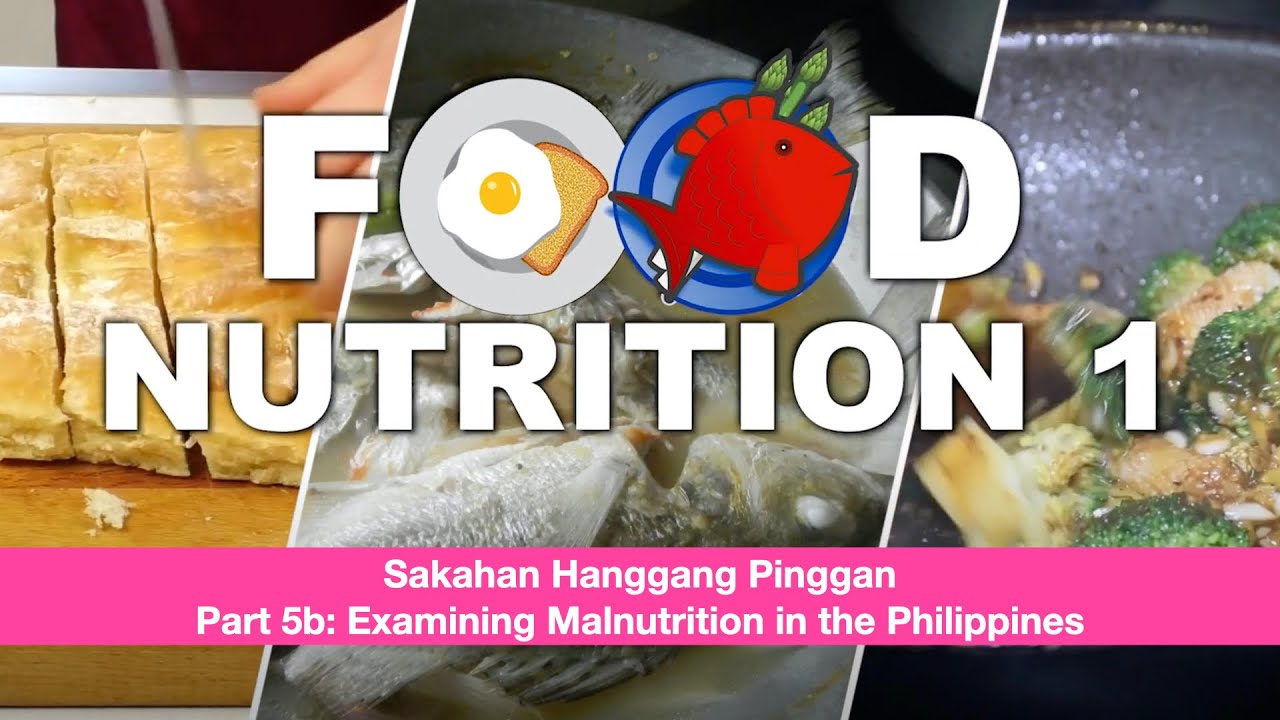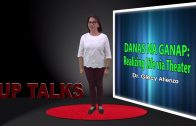PCS | Sakto o Tsamba! Political Surveys: Informing or Priming?
The Philippines Communication Society (PCS)
in partnership with TVUP invites you to the fifth of a series of
webinars of the National Forum on Communication and Democracy
Philippine Elections 2022
Webinar #5 Sakto o Tsamba! Political Surveys: Informing or Priming?
December 8, 2021
(Wednesday) 9:00 – 11:00 am.
Resource Speakers:
Dr. Ma. Rosel S. San Pascual
Chair, Graduate Studies,
UP College of Mass Communication
Dr. Imelda B. Deinla
Assoc. Professor, Ateneo School of Government
Convenor, BOSES Pilipinas
Rowena Paraan
Head, ABS-CBN News Public Service,
Bayan Mo, Patrol Mo
Dr. Ronald Holmes
President, Pulse Asia Research, Inc.
Moderator:
Mr. Ariel Sebellino
Executive Director, Philippine Press Institute
Opening Remarks:
Dr. Manuel M. Muhi
President,
Polytechnic University of the Philippines
Synthesis:
Dr. Hemmady Mora
Chairperson, Department of Journalism,
Polytechnic University of the Philippines
————————————————————
Sakto o Tsamba! Political Surveys: Informing or Priming?
Only seven months before the Presidential elections in May 2022, probable winners are already being predicted by a number of well-known and not-so-well known research and survey companies. Notably, the Social Weather Station and Pulse Asia regularly release their survey results showing a trend among the top three Presidential hopefuls.
The subject also addresses some observations that these surveys may create “trending” – making research an unwitting tool in priming certain candidates’ chances. No way must these surveys substitute for free exercise of choice by voters. This fifth offering of the Philippines Communications Society (PCS) — through its National Forum on Elections and Democracy – will be held on December 8, 2021 (Wednesday) 9am to 12nn via Zoom Webinar.
The question many are asking is this: How credible are these research findings? Judging from the long track record of the top two survey companies, there should be no reason to doubt the credibility of their findings. But let’s have a bit of history.
Classic Blunder in Survey Results! Our research methods have gone a long way since that embarrassing blunder committed even by Gallup Poll in 1948, when it erroneously predicted the win of Presidential bet Thomas Dewey against his closest opponent Harry Truman: Truman won.
Because of that major forecasting disaster, almost everyone questioned the method used called “quota sampling” – which could have been reliable except that the method allowed its field researchers to choose their own respondents. Gallup Poll did not use random sampling.
We now ask the question: When radio and television networks make telephone surveys, or when Facebook conducts online surveys, how can they do random sampling? Is there a hidden agenda when media conduct popular polls? So, the findings could be as unreliable as the 1948 survey that erroneously predicted the winner!
Speakers to Raise Our Confidence Level. Our speakers in this Webinar will discuss with participants how survey firms can assure us of reliable findings. They will familiarize us with the most basic reliability requirements like determining the right sample size, conducting the survey through random sampling, and making sure the survey instrument is free from bias.
This is the reason the Philippines Communication Society is conducting its next Webinar titled “Sakto o Tsamba! Political Surveys: Informing or Priming? This enables everyone to take a closer and objective look at the survey methods and their impact.
